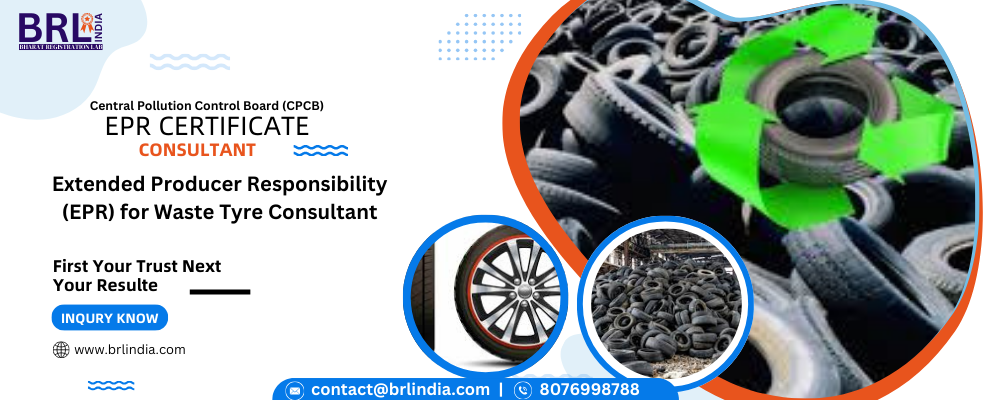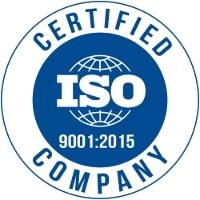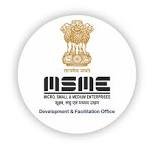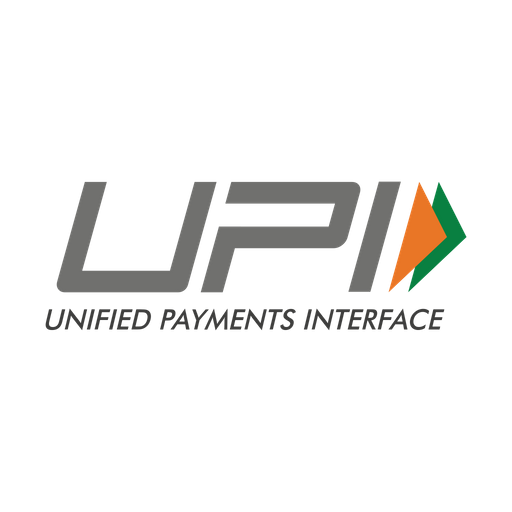
Extended Producer Responsibility (EPR) for Waste Tyre Consultant
EPR Authorization For Tyres Waste
The Hazardous and Other Wastes (Management and Transboundary Movement) Amendment Rules, 2022, which took effect on July 21, 2022, through Schedule 9, have been amended to reflect the recent changes made by the Ministry of Environment, Forestry, and Climate Change (MoEF), specifically the "Extended Producers Responsibilities (EPR) for the Waste Tyre" that were inserted through the Amendment Rules through the provision set forth for the utilization and management of Tyre waste.
Meaning of EPR for Waste Tyre
The EPR is an obligation placed on tyre manufacturers to ensure environmentally sound management of waste tires in order to safeguard the environment and public health from any harmful effects that the waste tires may have.
The EPR practices combine environmental, economic, and social factors; they offer incentives to organizations to prevent tyre waste at the source, which would harm the environment more, and to promote products that are designed to be environmentally friendly and meet public recycling and management goals.
According to the EPR regulations, the EPR mechanism holds producers accountable for how they dispose of or organize tyres that are no longer useful.
EPR Registration for Waste Tyre
Application of the Amendment in Hazardous and Other waste (management and Transboundary Movement)
- Registration of the Entity: In accordance with rule 3 of the amendment rules, entities involved in the utilization and management of waste tires must register with the Central Pollution Control Board (CPCB) prior to beginning operations.
- The EPR obligations have been imposed through amendment rules through the bifurcation to the entity registered at the CPCB portal, according to the ERP process's operational modes.
Producers' accountability
The term "tyre producer" refers to anyone who manufactures and sells brand-new tires domestically, internationally, through other producers or suppliers, or who imports waste tires for use in new vehicles sold in India.
After obtaining an EPR certificate from a registered recycler and submitting it online through the filing of a quarterly return, producers are required by rule 7 of the Amendment Rules to fulfill their ERP obligations.
Recyclers’ Accountability
The recycler is involved in the process of converting used tires into environmentally friendly end products like recovered carbon black, crumb rubber, crumb rubber modified bitumen, or pyrolysis oil/char that can be used as the raw material for making new tires. Pyrolysis oil or char, however, is used as fuel rather than as a raw material for making new tires.
The producers must also provide the CPCB with information about the number of waste tires used and the finished product produced each month under rule 8 of the amendment act.
Benefits of EPR for Waste Tyres
- The main functionality of EPR for Waste tyres is being dealt with by the Producers, Importers, Brand Owners (PIBOs) of the product and Plastic Waste Processor (PWPs), to reduce the waste tyre from the environment, doing so they get a lot of benefits including the environment protection.
- The PIBOs gets focuses on the production and importing of only such products through which recycling becomes easy once they get registered through the EPR portal, which ultimately reduces the demand for manufacturing new plastic and the reuse of existing nonuse able plastic gets increased, Through the following of these processes, the cheaper compliance and ease of reusing of the product becomes effective.
- Through the compliance of the EPR, the reusing of plastic products becomes easy and extends the life of the plastic products, and saves the environment through the reduction in the production of new plastics,
- The energy requirement in recycling and reusing plastic products are very less and water resources are saved through the same.
- The Producers, Importers, and Brand Owners would have to put less effort into compliance with the stringent norms against the use of plastic through the adoption of the EPR regulation, the right mechanism for collection of the waste tyre would lead the company to a benefit of great extent.
- The EPR mechanism reduces the municipal bodies overloading and through the right mechanism, they also get a lot of benefits.
- Even the government supports to a great extent if the EPR mechanism is being followed effectively, the stakeholder or entities gets the incentive for carrying the EPR effectively.
- Even the end user becomes aware of the use of the waste tyre and reusing mechanism through the prescribed process leads them to benefit to a great extent.
EPR Registration Process From CPCB for Waste Tyre Management
Let's take a look at the procedure for obtaining the Extended Producer Responsibility (EPR) from the CPCB for the waste tyre. This is required by the CPCB's (Central Pollution Control Board) mandatory provisions for registration in order to obtain the EPR before the start of production or import of a new or waste tyre under the Extended Producer Responsibility Regulations for the disposal or recycling mechanism of the waste tyre.
- By submitting Form 1 in accordance with the Hazardous and Waste Management Rules, 2016, any stakeholder, importer, or producer of tires is required to obtain an EPR.
- For the EPR Pollution Certificate, carefully read each document, then put it in the proper order.
- The applicant receives the EPR certification in 40–60 days, assuming they have met all requirements.
- For the step-by-step registration process for EPR
- Contact the BRL INDIA Expert Team for authorization and registration compliance requirements.
The Documentation Required By Entities to Obtain EPR Certificate
The Documentation Required By Entities to Obtain (EPR) Registration/Authorization/Certification
- Certificate of Incorporation for the Company
- Details regarding the owner, proprietor, or sole proprietor.
- PAN and GST certification number
- The DGFT's IEC Code (For Particular Entities)
- Company letterhead declaration
- Country of Origin
- Waste tyre Quantity
- EPR plan (all steps and procedures to be followed)
- Statement of Compliance with the Reduction of Hazardous Substances (ROHS).
- Letter of understanding (LOI) with recyclers, dismantlers, storage facilities, and disposal facilities (TSDFs), among others.
- Self-attestation by the Dismantlers and Recyclers.
- List of manufacturers connected to recyclers or destructors, along with the manufacturers' planned collections.
The Obligations for The Tyres Manufacturer and Importer:
- In the years 2020-21, the amount of newly manufactured or imported tires would equal up to 35% of the EPR obligations for the years 2022-2033.
- Obligations for 2023–2024 would equal up to 70% of the amount of newly manufactured goods or imported tires imported in 2021–2022
- The total amount of newly manufactured or imported tires in the years 2022–2023 would be the maximum amount of EPR obligations for the following years, 2024–2025.
- The EPR obligations after the years 2024–2025 must equal up to 100% of the number of tires produced in the years 2022–2023.
- The EPR obligation will be implemented for units built after April 2022, and it will be up to 100% of the tires produced or imported from the previous year.
The importer of waste tires must fulfill the entire EPR obligation for the tires from the previous year.
The retarding EPR obligation shall be for the waste tyre; up to the waste tyre that has been retarded, the obligation shall be deferred for 1 year.
Fees for Obtaining Waste Tyre EPR Certification
The CPCB levies fair registration fees that are determined by the applicant's desired quantity of the product and approved by the steering committee. Connect with us for more information.
Penalties and Compensation
The producers and recyclers who fail to abide by the guidelines formulated by the new act will be held responsible for the payment of the compensation, according to the Central Pollution Control Board's regulations for EPR responsibility.
The person who provides false information for the ERP certification, generates the ERP certificate above 5% of the actual waste recycling, or willfully violates the provisions of the schedules shall be punished with imprisonment that may last up to five years, a fine up to one lakh rupees, or both. These environmental compensations are imposed by the CPCB on the producers and recyclers for the non-fulfillment of the obligations.
According to the most recent amendment for the environmental management and disposal of waste tires, the responsibilities of producers, recyclers, and retreaters have been strictly enforced. To obtain the EPR certification and adhere to the law, get in touch with us.









